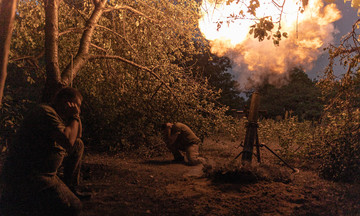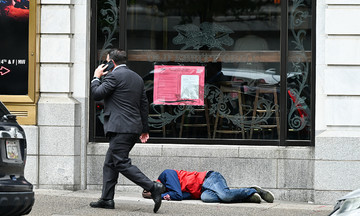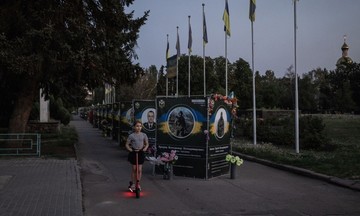On 24/7, French President Emmanuel Macron announced on X (formerly Twitter) that France would recognize a Palestinian state in September, "in line with its historical commitment to a just and lasting peace in the Middle East". Almost a week later, on 29/7, UK Prime Minister Keir Starmer announced a similar plan.
If France and the UK follow through, it would be the first time two Western powers on the UN Security Council and G7 recognize a Palestinian state.
This noteworthy move marks a shift from the typical Western stance of recognizing Palestine only after an agreement on issues like borders and the status of Jerusalem.
"This shows growing frustration in many parts of Europe with the violence in Gaza and the failure of peace negotiations", wrote Malak Benslama-Dabdoub in The Conversation.
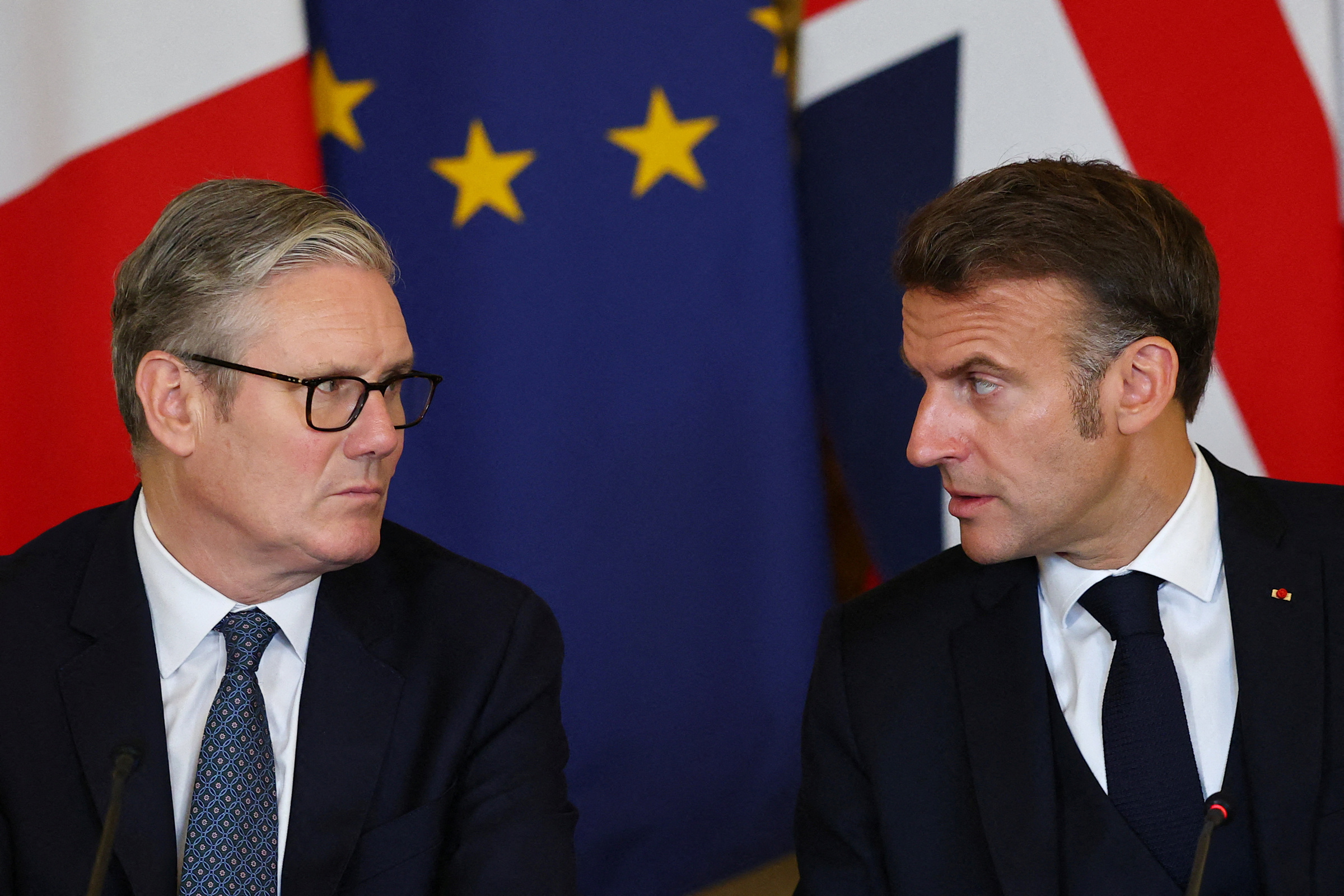 |
UK Prime Minister Keir Starmer (left) and French President Emmanuel Macron in London on 10/7. Photo: AFP |
UK Prime Minister Keir Starmer (left) and French President Emmanuel Macron in London on 10/7. Photo: AFP
The conflict began in 10/2023 when Hamas attacked Israel, killing over 1,100 people and taking about 251 hostage. Israel retaliated, and after 21 months, the conflict has resulted in over 60,000 Palestinian deaths, nearly 146,000 injuries, widespread destruction in Gaza, and extensive famine.
"France's recognition of Palestine signals to Israel that there's a political cost among allies for its actions in Gaza", Martin Konecny, director of the European Middle East Project (EuMEP), told euronews.
Macron also aims to pressure European allies like the UK, Germany, and Italy to adopt similar stances, potentially reviving the two-state solution.
"The images of starving children in Gaza, while the US doesn't really pressure Israel, made it impossible for Macron to stay silent. He believes this is the only way to end the conflict", commented Middle East expert Gilles Kepel.
The two-state solution proposes separate territories for Israel and Palestine. The concept arose in 1947 when the UN partitioned British-mandate Palestine into Jewish and Palestinian areas. Conflict following Israel's 1948 establishment hindered the creation of a Palestinian state. The 1993 Oslo Accords granted Palestine control over the West Bank and Gaza. However, expanding Israeli settlements in the occupied West Bank and Israel's denial of Palestinian territory threaten the two-state solution.
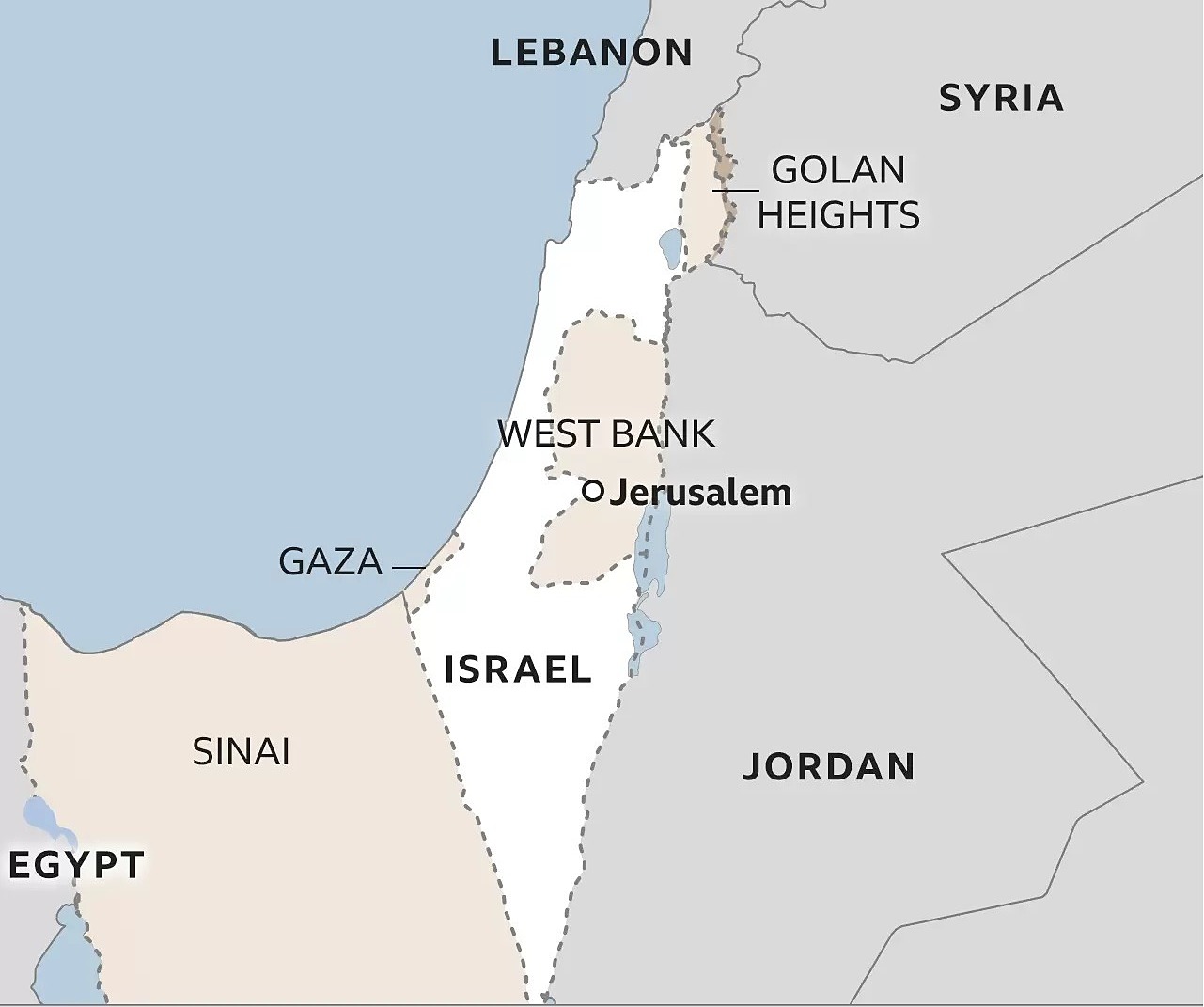 |
Borders of Israel, Gaza, and the West Bank after the 1967 war. Graphic: BBC |
Borders of Israel, Gaza, and the West Bank after the 1967 war. Graphic: BBC
CNN commentator Joseph Ataman believes Macron sought a "domino effect" of Palestinian state recognition in Europe, successfully influencing the UK.
"The UK will recognize a Palestinian state in September if Israel doesn't take concrete action to end the Gaza tragedy", Starmer stated. He emphasized the need for a ceasefire, aid access, a commitment against annexing the West Bank, and a lasting peace process towards a two-state solution.
This move also eases domestic pressure on Starmer, as Labour MPs increasingly urge him to pressure Israel.
Starmer initially hesitated, viewing recognition as symbolic and potentially complicating ceasefire negotiations. However, warnings of famine in Gaza and US President Donald Trump's indication he wouldn't object to the UK's independent stance prompted Starmer's shift, according to two UK officials.
The Palestinian Authority and Hamas welcomed the UK and France's moves, while Israel called them an existential threat.
"A Palestinian state would be a launchpad for destroying Israel, not coexisting peacefully. It must be clear that Palestinians don't seek a state alongside Israel, but one replacing it", said Israeli Prime Minister Benjamin Netanyahu.
 |
Aid workers distribute food in Khan Younis, southern Gaza Strip, on 22/7. Photo: AFP |
Aid workers distribute food in Khan Younis, southern Gaza Strip, on 22/7. Photo: AFP
It remains unclear how Europe can pressure Israel, which relies heavily on the US for security. Many European countries remain hesitant about recognizing Palestine. Germany stated it has no immediate plans to do so, prioritizing a "long-delayed process" towards a two-state solution. Italian Foreign Minister Antonio Tajani said recognition should be reciprocal, with the new Palestinian state recognizing Israel.
"Otherwise, the issue won't be resolved", Tajani said.
Al Jazeera political analyst Marwan Bishara expressed skepticism about the French and UK announcements, given their and other Western leaders' general support for Israel in the conflict with Hamas.
"We need to see concrete actions, not rhetoric, because they have no standing to talk about peace and justice while enabling violence", Bishara said.
Nhu Tam (According to France 24, Reuters, CNN)









